Search the Special Collections and Archives Portal
Search Results
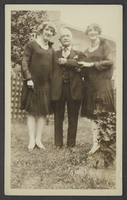
Photograph of George A. Clifton and others, September 05, 1928
Date
Archival Collection
Description
Image
George Kielak oral history presentation
Identifier
Abstract
Oral history presentation by George Kielak to an unidentified group recorded on February 1, 2007. In his talk, Kielak explains that he was born in Warsaw, Poland in 1929 and was nine years old when Germany occupied the country. He describes what it was like living under the German occupation forces and comments that of all the occupied countries during World War II, Poland suffered the most severe restrictions and punishments. He then outlines the progress of the war from 1939 to 1944, a period in which he joined the Polish resistance movement. He explains that after the resistance fighters rose up against the Germans in 1944 Russia would not help, leading to the collapse of the movement, his capture by the German forces, and his seven month internment in a POW camp. He describes immigrating to England at the end of the war because Poland became part of the Soviet Union. After serving in the British Army, he immigrated to the United States in 1950. At the end of the presentation he shows maps and photographs and answers questions from the audience.
Archival Collection
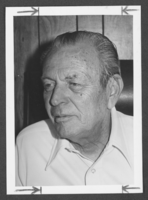
Photograph of george Ullom Jr., Las Vegas, 1980
Date
Archival Collection
Description
Image
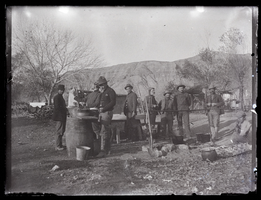
Photograph of a Willard and Hampton George at an encampment, 1900-1904
Date
Archival Collection
Description
Image
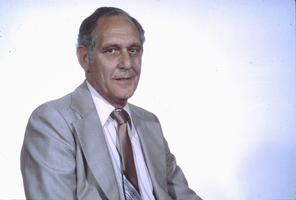
Slide of George Hardbeck, circa 1970s
Date
Archival Collection
Description
Image
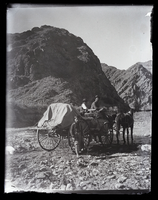
Photograph of Willard and Hampton George (Nev.), 1893-1904
Date
Archival Collection
Description
Image
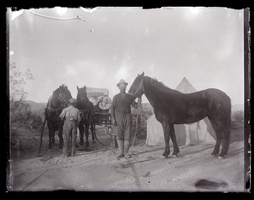
Photograph of Hampton and Willard George (Nev.), 1900-1904
Date
Archival Collection
Description
Image
"Street Talk" with George Knapp segment: video
Date
Archival Collection
Description
"Street Talk" with George Knapp segment where he pitches sarcastic TV sitcom ideas including "Stupak's Island"; "Leave it to Lonnie"; "Bridger Bunch"; "I Love Dina"; "Dr. Nevada, Mattress Woman". Original media VHS, color, aspect ratio 4 x 3, frame size 720 x 486. From the Bob Stupak Professional Papers (MS-01016) -- Professional papers -- Audiovisual material -- Digitized audiovisual clips file.
Moving Image
George Ward oral history interview
Identifier
Abstract
Oral history interview with George Ward conducted by Charles P. Hall on March 11, 1978 for the Ralph Roske Oral History Project on Early Las Vegas. In this interview, Ward discusses moving to Las Vegas, Nevada in 1942 and his experience in the city as an African American. Ward describes the jobs African Americans were hired for in Las Vegas during the 1940s and his teaching career. He describes segregation and discrimination in the school system and in casinos. He also talks about how African American police officers were only allowed to patrol West Las Vegas, housing availability, and organized crime in the city. Lastly, Ward talks about his involvement in local politics, the beginnings of the University of Nevada, Las Vegas, and the development of Las Vegas.
Archival Collection
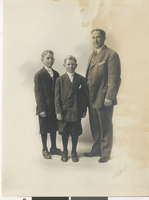
Photograph of George, Arthur, and Leonard Fayle, 1900-1910
Date
Archival Collection
Description
Image
